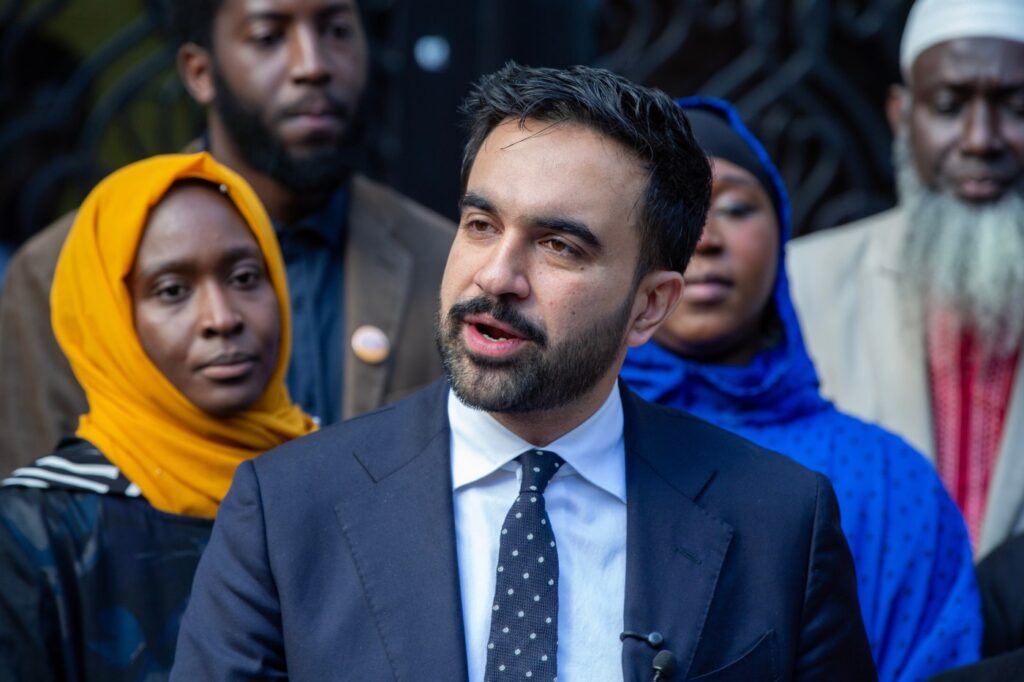
The U.S. political landscape is at a significant crossroads, with the emergence of two influential figures representing contrasting ideologies. On one side is the late Republican conservative, Charlie Kirk, whose vision of the party was cut short by his assassination. On the other, Zohran Mamdani, a rising star in the Democratic Party, is poised to challenge the establishment as he campaigns for mayor of New York City. Both individuals have captured the attention of young voters, yet their approaches to governance and economic policy differ starkly.
Kirk, who founded Turning Point USA, dedicated his efforts to promoting conservative values across college campuses. He gained support from prominent Republicans, including former President Donald Trump, and was seen as a unifying figure within the GOP. Kirk’s philosophy emphasized personal responsibility and the belief that success comes from hard work. He famously stated, “In America, you are usually a conservative if you produce more than you complain.” His untimely death has left a void in the Republican Party, which he helped strengthen through grassroots mobilization.
In contrast, Mamdani represents a new wave of progressivism within the Democratic Party. At just 34, the Muslim representative from New York Assembly has garnered support from figures like Senator Bernie Sanders and Senator Elizabeth Warren. Mamdani’s platform includes proposals such as free public transport and affordable grocery options through city-run stores, which he argues will alleviate economic burdens for low-income families. His approach to governance is characterized by a belief in expanded government intervention, which has resonated with many young voters seeking change.
As Mamdani rises to prominence, he is also creating divisions within the Democratic Party, with more moderate members questioning the direction of their platform. His advocacy for what some describe as radical socialism is driving a wedge between traditional Democrats and the party’s left wing. This ideological rift mirrors the broader struggle within U.S. politics as both parties grapple with their identities and the needs of their constituents.
The contrasting visions of Kirk and Mamdani highlight the generational shift occurring in American politics. While Kirk sought to unify the Republican base under conservative principles, Mamdani is pushing for a more progressive agenda that challenges the status quo. The young leaders represent divergent paths: Kirk’s belief in self-reliance versus Mamdani’s emphasis on collective support.
Both candidates have effectively mobilized young voters, but their appeal is rooted in fundamentally different philosophies. Kirk’s message of limited government and personal accountability clashes with Mamdani’s promise of government support and social welfare programs. This divergence raises important questions about the future of both parties and their ability to connect with the electorate.
Mamdani’s background adds another layer to his narrative. Born in Kampala, Uganda, he moved to the United States at the age of seven. His personal story resonates with many who see him as a symbol of opportunity in a rapidly changing country. Kirk, on the other hand, was born in Arlington Heights, Illinois. He became a prominent figure without ever holding elected office, showcasing an alternative pathway to influence in American politics.
As the U.S. navigates these pivotal times, the choices made by voters will determine the direction of both the Republican and Democratic parties. The roads ahead are distinctly defined by the visions of Kirk and Mamdani, each representing a unique perspective on governance and the role of government in people’s lives.
The upcoming mayoral election in New York City will serve as a critical test for Mamdani and a reflection of broader national trends. As the electorate prepares to make decisions that could reshape party dynamics, the stakes are undeniably high. The future of American politics may well depend on which road voters choose to take.






